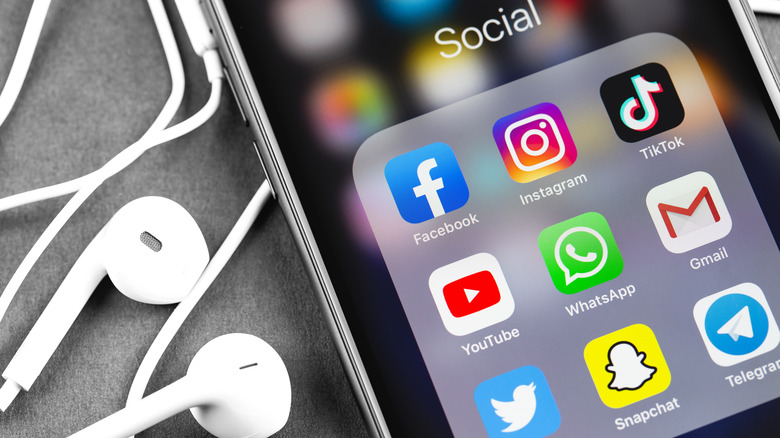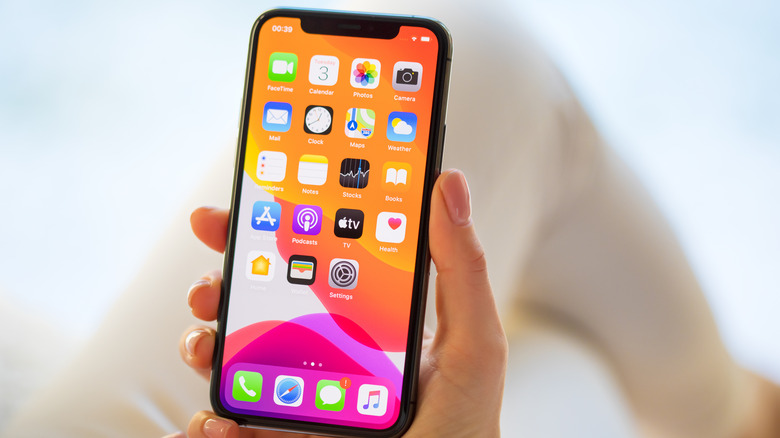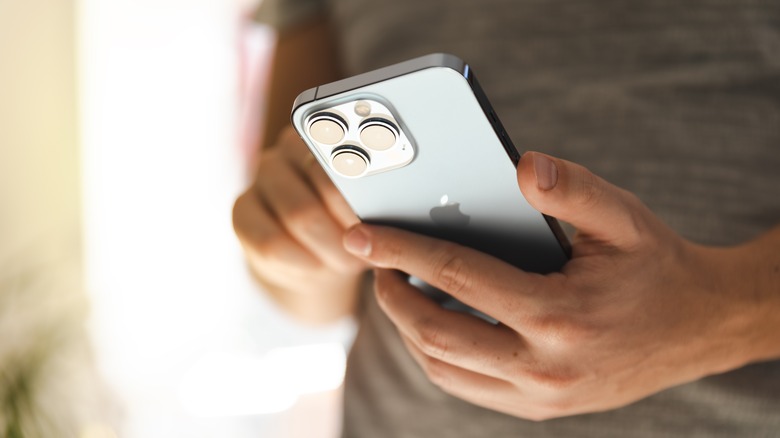Why You Need To Stop Closing Apps On Your iPhone
Popular myths related to the technology we use every day are nothing new — who can forget blowing into a Nintendo cartridge under the mistaken belief that it somehow helped the game load? A present-day example of one such myth involves a supposed fix for a sluggish or poorly performing iPhone: force closing one or more of the apps running in the background. This seems like it would be a good idea because a similar approach works when using a PC — shutting down programs already running to free of system resources, that is (via Microsoft). This can help speed up the main program you're using by freeing up memory and CPU from background programs.
Using this same method on the iPhone, though, can actually be detrimental and doesn't help as much as one might expect. This is because when you leave an app up in the background on an iOS device, it stops using up some of your iPhone's system resources — this is called a suspended state. As a result, background apps won't really affect the function of the app you're currently using, Apple explains. In some circumstances, when you close one of these background apps, it can cause slower performance and more battery loss compared to when they're simply kept running in the background, and may result in more frustration in the long run.
Force closing and re-opening apps can hurt your battery
When apps are not currently running on your iPhone, they are put into a type of standby mode called a suspended state after a short period of time. In this mode, the app isn't using system resources, so there's no need to close it in order to get faster device performance. Instead, issues can arise when you eventually re-open the app you previously closed manually. When an app launches, additional system resources need to be used in order to properly restart the application. Doing this regularly can cause a lot of battery drain on your iPhone, as former Genius Bar technician Scotty Loveless explained at LifeHacker.
There is a big exception, though: an app may still be running in the background if you have Background App Refresh turned on for it. This feature allows apps to check for updates while they're not in use and is useful for things like messaging, social media notifications, and getting real-time weather updates as new info becomes available. It's a good idea to have Background App Refresh enabled for apps like YouTube, for example, so that you don't have to manually refresh the app to see what's new.
You can turn this Background App Refresh in your iPhone's Settings app, however, if you want more control over which apps can run in the background. When it's off, you don't have to worry about closing background apps because they aren't technically running in the first place. Alternatively, you can toggle off background refreshing for only specific apps, such as ones you don't often use. Doing so can save a lot of your battery life and will make multitasking operations on your iPhone hassle-free, as intended, but keep in mind that you won't get new updates from those apps until you manually open them again.
When you should force close apps on iPhone
So when should apps in the background be closed? As Apple states, the only time you should close an app is if it has become unresponsive. This means the app has frozen, isn't working correctly, or otherwise can't be used. At this point, it's a good idea to close the app in question and attempt to restart it. You can do this on iPhone by navigating to all of your background apps, which can be done on the iPhone X and later by swiping up from the bottom of the screen, or on earlier iPhone models by double-pressing the Home button. From this screen, you can find the app that is unresponsive, then swipe up on it to force it to close.
iOS was made to be an efficient multitasking tool, which is why it handles background apps so well. When these apps are in standby mode, you don't need to worry about clearing them out because they aren't actually using system resources anyway. Closing an app completely and then relaunching it can waste more power than simply letting them sit in the background, especially if you're doing this over and over again. So, have some peace of mind knowing you can keep all those apps up and it's actually better for your phone to do so.


